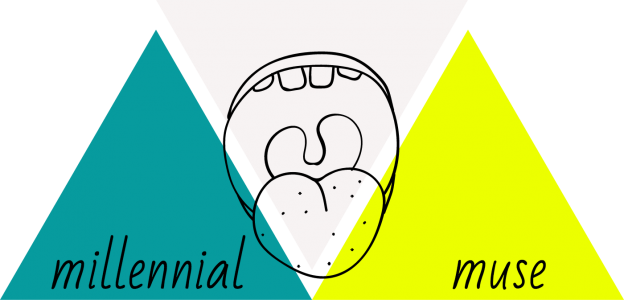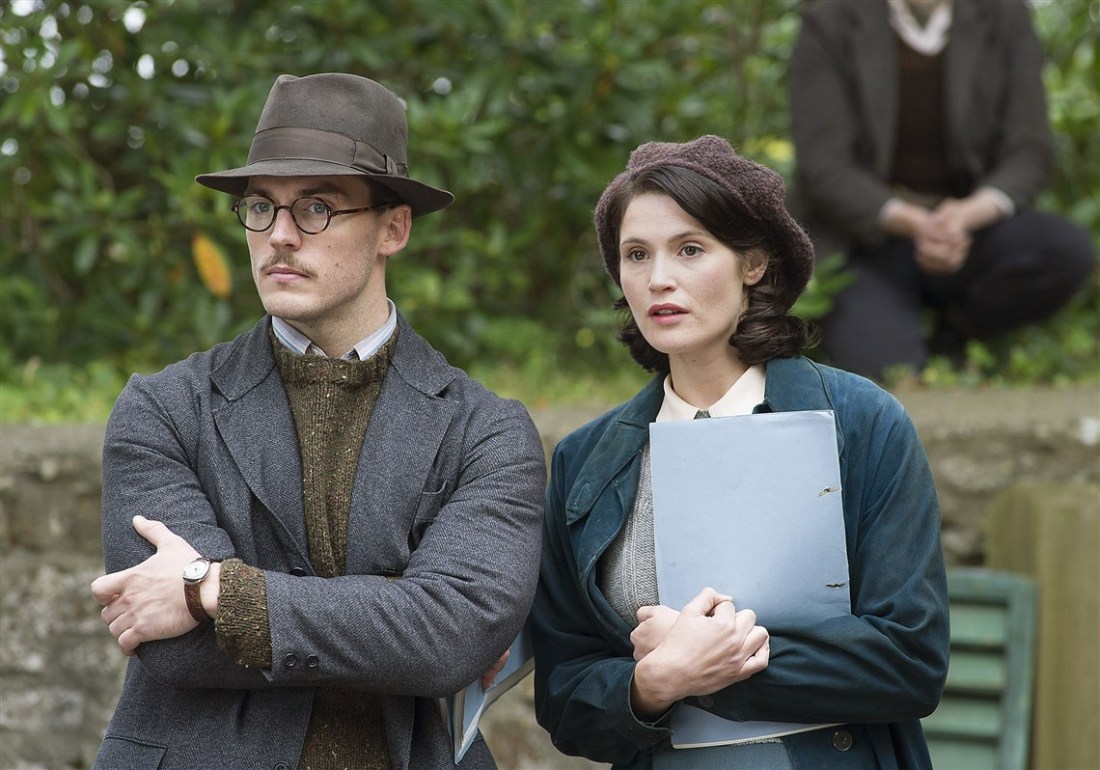Every film student dreads the inevitable question that is bound to be asked by every friend, family member and acquaintance: what’s your favourite film? Or rather what would you recommend?
It is this moment that your brain goes into overdrive- running through the built in mental library of every film you’ve ever seen, the ones you studied due to their prestige, the films you felt obligated to see and the ones that are secretly you’re guilty pleasure despite a bashing from critics. However, at the end of the day, any art medium is subjective and you should take pride in the films that spoke to you on a personal level.
So without fear of judgement or in detail analysis – here are a few of my favourite films.
5. Atonement (2007) Dir.by Joe Wright
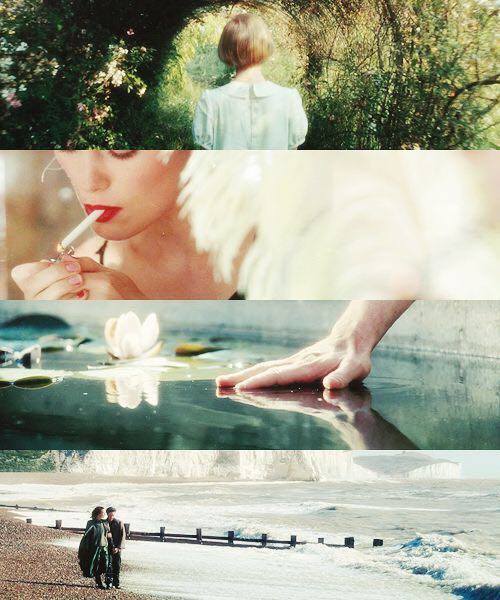
This was the first film I watched that made me feel incredibly adult and mature, as well as also being the first that made me fall in love with Joe Wright as a director. This adaptation of Ian McEwan’s award winning novel, expertly plays with time, perspective and as a romance sap at heart, complex and tragic love. I am a self- professed period film nerd and this movie captured my heart and mind as I loathed 13 year old Briony, despaired for Keira Knightly’s Cecilia and of course fell head over heels for James McAvoy’s incredible portrayal as innocently convicted Robbie. *sigh* so dreamy in that tux.
4. Carrie Pilby (2016) Dir. by Susan Johnson
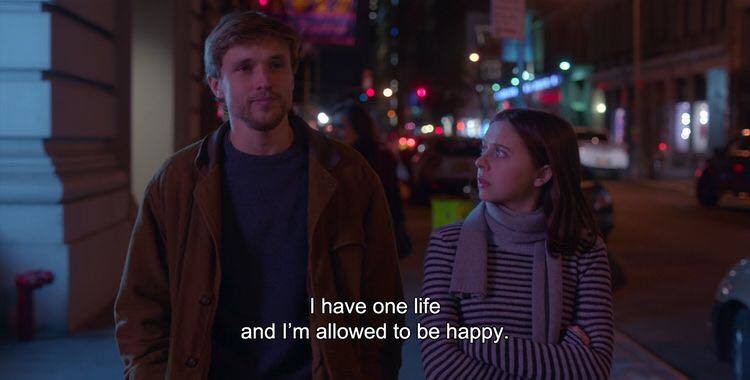
one of my more recent additions to the list, again based on a novel of the same name (as an avid bibliophile I can sense a pattern here), the 2016 film Carrie Pilby starring Bel Powley has rightfully earned its place in my top five films. As a post grad in my early twenties, I found myself identifying with Carrie in almost every scene. Having grown up watching coming of age movies, I expected that this film would be like all the others – a girl in the big city lost at who she is and who she is meant to be. Yet Carrie Pilby’s story along with Powleys performance has created an emotive, witty and surprisingly fresh film- Proving that there is such a thing as intellectual romance.
3. Social Network (2010) Dir. By David Fincher
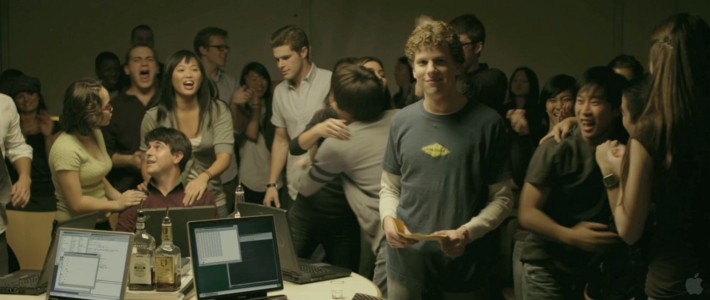
Not only is this film wonderfully shot and edited- the constant back and forth between Mark Zuckerberg’s past and the various depositions, tell the narrative in a innovative and brilliantly suspenseful way- but the focus on conversation and authenticity is what makes ‘The Social Network’ number 2 on my list. Putting emphasis on performance here, the way in which Jesse Eisenburg can convey 100 different emotions in one eye roll or distant stare is impeccable. The opening is perhaps one my favourites, when mark is rightfully dumped by girlfriend Erica for being and I quote ‘an asshole’ to her. The speed at which this conversation happens can make your head spin, yet it is so authentic and makes you feel as if you are observing a real complex moment in these two characters lives. Plus JT as Sean Parker, a massive pest to the music industry, just shows how much thought Fincher puts into his ironic casting.
2. Breakfast Club (1985) Dir. by John Hughes (of course a classic had to make the list!!)

What can I say about Breakfast Club that hasn’t already been said! It’s just fantastic- this is my go to lazy Sunday afternoon watch. My favourite thing about this 1985 classic is the way in which director John Hughes made the film, which essentially was with close to no script. Most of the film’s iconic scenes were largely improvised by the cast- for example due to Molly Ringwald’s shyness the rest of the cast joined her in a scene where Claire was meant to dance alone- Yes, you all know the scene! It is regarded as perhaps one of the most iconic scenes in film to date. Not bad for making it up on the spot.
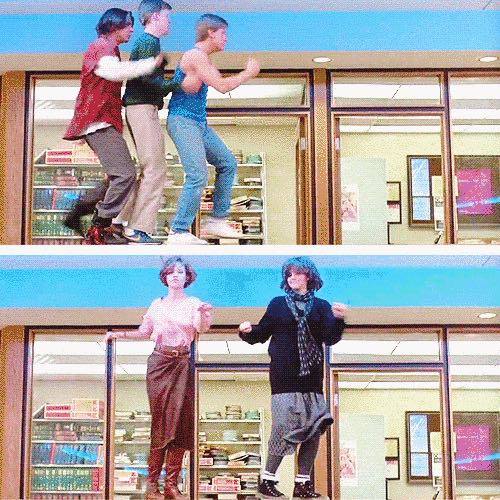
Again, arguably the most emotive scene in the whole movie, when the group sit and discuss what they individually did to warrant a Saturday detention was improvised. John Hughes told the cast to ad-lib why they thought their character would be there. I mean… if that isn’t reason enough to make it into the top 5 then I don’t know what is.
And Finally….
- Chasing Amy (1997) Dir. by Kevin Smith
 Honestly, my love for Kevin Smith as a filmmaker and writer all spun from watching this movie one night, alone in my bedroom. I had seen a poster for it in the staff room at work and vowed to go home and see who this Amy was and why Ben Affleck was chasing her. There is so much more to this movie than meets the eye, with each character overcoming preconceived notions as to what it means to love and be loved in return. Banky and Holden’s friendship is not only comical, but genuine and as the narrative progresses it is their relationship that I feel the film is ultimately about- the fine line between friendship and love. The majority of us swooned at Ben Affleck’s heart wrenching monologue about how his love for Alyssa (Not Amy as I previously thought) had changed his whole outlook on life. It’s not the dramatic downpour of rain and swelling emotions that make this scene for me but the honesty of the writing- the themes explored throughout the movie are dealt with honesty, humour but also sensitivity. Challenging expectations about gender roles, sexuality and friendships- It’s no wonder that Smith received critical acclaim, especially after two hipster stoner films (which I also loved.)
Honestly, my love for Kevin Smith as a filmmaker and writer all spun from watching this movie one night, alone in my bedroom. I had seen a poster for it in the staff room at work and vowed to go home and see who this Amy was and why Ben Affleck was chasing her. There is so much more to this movie than meets the eye, with each character overcoming preconceived notions as to what it means to love and be loved in return. Banky and Holden’s friendship is not only comical, but genuine and as the narrative progresses it is their relationship that I feel the film is ultimately about- the fine line between friendship and love. The majority of us swooned at Ben Affleck’s heart wrenching monologue about how his love for Alyssa (Not Amy as I previously thought) had changed his whole outlook on life. It’s not the dramatic downpour of rain and swelling emotions that make this scene for me but the honesty of the writing- the themes explored throughout the movie are dealt with honesty, humour but also sensitivity. Challenging expectations about gender roles, sexuality and friendships- It’s no wonder that Smith received critical acclaim, especially after two hipster stoner films (which I also loved.)
Many people think that ‘Chasing Amy’ is simply about a young man falling in love with a lesbian- but I think it’s so much more complicated than that. The film explores sexual fluidity in a way that was certainly ahead of its time, all three of the main characters evolve and discover more about their own deep internal desires and how it’s not necessarily about defining your sexual orientation but being open to evolving it as you grow and mature.

With a cameo from my favourite pothead duo, Jay and his ‘Hetero lifemate’ Silent Bob, a scene which in my opinion is the perfect summation of the entirety of the film’s plot, I fall more and more in love with this film every time I watch it.

